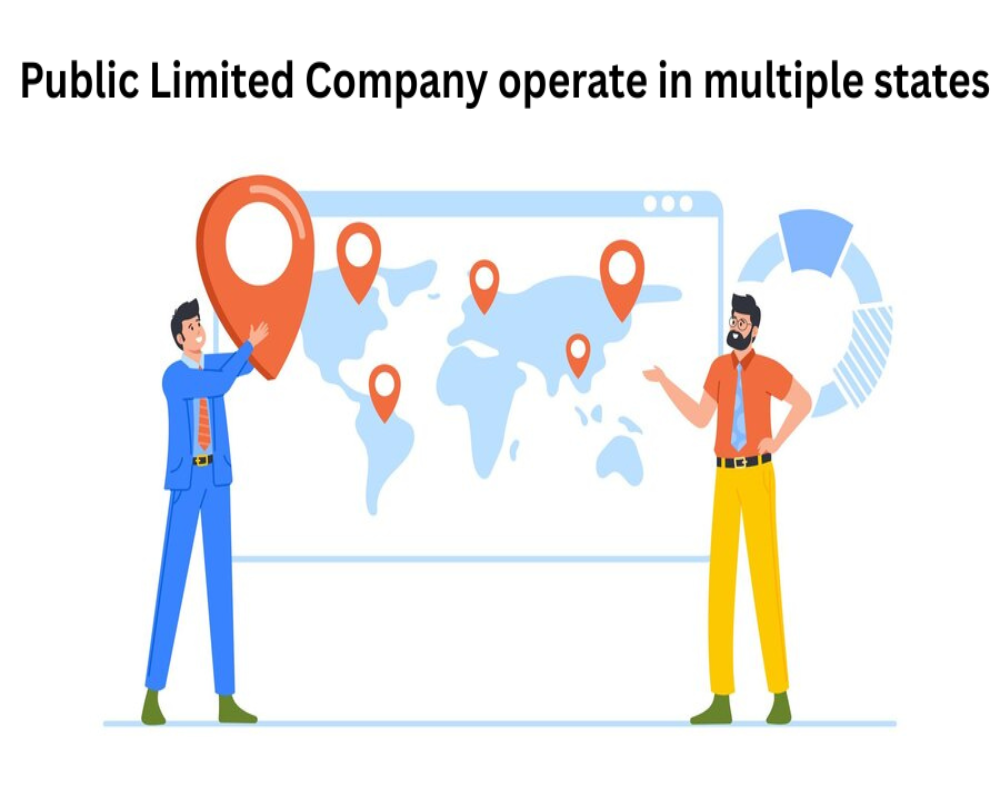1. Yes, Public Limited Companies Can Operate Across India
- A Public Limited Company registered under the Companies Act, 201,3 has the legal right to operate in multiple states within India.
- It is considered a separate legal entity and can carry on business across different geographic locations without needing separate incorporation in each state.
- The company’s Certificate of Incorporation is valid nationwide.
2. Branch Office or Place of Business Registration
- When a Public Limited Company opens a branch, office, factory, warehouse, or other establishment in a different state, it must comply with:
- Local laws (e.g., state-specific Shops and Establishments Acts)
- Labour laws (e.g., PF, ESIC, and minimum wages)
- Professional tax and state-specific registrations, if applicable
- Local laws (e.g., state-specific Shops and Establishments Acts)
- The company must update its business address records in statutory filings when a new place of business is added.
3. GST Registration for Each State
- Under the Goods and Services Tax (GST) regime, a company must obtain a separate GST registration for each state from which it makes taxable supplies.
- Even though the PAN remains the same, each GST registration is treated as a distinct person under GST law.
- Returns and tax payments must be filed individually for each GSTIN in the respective state.
4. ROC and MCA Compliance
- A company is not required to register separately with different Registrars of Companies (ROC) for multiple states.
- However, if a registered office is shifted from one state to another, it requires:
- Board and shareholder approval
- Special resolution
- Approval from the Regional Director of MCA
- Filing of Form INC-23 and Form INC-22
- Board and shareholder approval
5. Operational and Strategic Benefits
- Multi-state operations help companies expand market presence, optimize logistics, and reach diverse customer bases.
- They also enhance the company’s credibility and brand value, especially for listed or large-scale public companies.
- Proper planning, licensing, and local compliance are essential to avoid legal or tax complications.


0 Comments